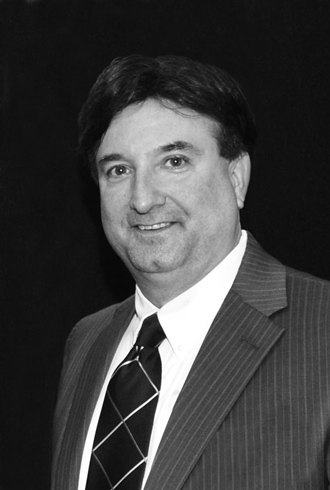 Scott Peck
Scott Peck
Doctorate in Art Education
On June 28, 2005, the Dallas Fire Department responded to a six-alarm fire at the Museum of Biblical Art, a non-profit, non-denominational organization home to works of art inspired by the Bible. Despite best efforts, the fire destroyed thousands of art objects and left lasting scars on the surviving art and those who cared for it, including museum curator Scott Peck.
“When you go through an event like that in a museum, there's trauma — in the art objects and the building and the people. But on the positive side is the healing,” Scott says.
For Scott, who still serves as curator and art conservator for the museum, that healing began in earnest when he started his Ph.D. in Art Education at UNT in 2012.
Originally from Park Ridge, Illinois, Scott fell into the museum world through his work creating films for various organizations. A colleague introduced him to the family who founded the museum, and he began his work there, reigniting a passion sparked by childhood visits to museums with his parents.
Throughout his 25-year career, Scott has cared for thousands of museum objects, curated more than 200 art exhibitions and worked with educational programs in museums dedicated to subjects ranging from trains and planes to science, the military and historic homes. “You know how some people just have a certain calling?” he says. “My calling is to work with museums.”
The fire changed everything. Experiencing loss at such a devastating and personal level got him thinking about art’s intrinsic value — its life — and humanity’s responsibility to preserve it.
“We’re in a dire situation,” he says. “Statistics show that 50% of all artwork in the public trust is in need of some kind of conservation. Seventy percent of staff at museums need more conservation training, and there are no art conservation programs in the state of Texas. We are in desperate need of new approaches and ideas to better care for our artwork that is literally dying.”
Driven by what he saw as a potentially disastrous blind spot, Scott enrolled in the College of Visual Arts and Design’s Ph.D. in Art Education program, the only one in Texas.
Through his research, Scott explored how art conservation principles and theories can be extended to global issues like worldwide pandemics, species extinction, climate change and collapsing ecosystems. “We are literally entangled — human and nonhuman — at the atomic and subatomic levels,” he says. “When we care for ourselves, we care for the other. My research rethinks art conservation and art education curriculum toward a more caring, ethical and sustainable future for both human and nonhuman coexistence on this planet.”
Encouraged by his faculty mentor Nadine Kalin, professor of Art Education, Scott made his research part of his own healing process. “Dr. Kalin has been fantastic,” he says. She helped to inspire me to go deeper. I could not have reached the depth of my research without her.
He also found a support system in art history professors Denise Amy Baxter and Kelly Donahue-Wallace. As a doctoral fellow from 2017 to 2019, Scott taught UNT’s first classes in the field of art conservation and the history of Jewish art. He continues to serve on the Jewish Studies Advisory Board in the UNT College of Liberal Arts and Social Sciences.
With his Ph.D. in hand, Scott is eager to enact real change in art education and conservation fields, he said. “The ultimate dream is to establish certificate programs throughout universities and colleges and hopefully, eventually, an undergraduate and graduate degree.”
In the 17 years since the fire, Scott has learned that healing, much like restoring a delicate work of art, can be painstaking — but there is beauty in the process.
“Conservation is like a clinic or a hospital for art objects,” he says. “We’re bringing them back to full life. The cleaning itself is ritualistic, almost like a mantra or rosary beads — like a meditation or a prayer for healing. That's kind of the core of all this: turning pain into something positive.”
Article by UNT UBSC staff writers, December 2022






